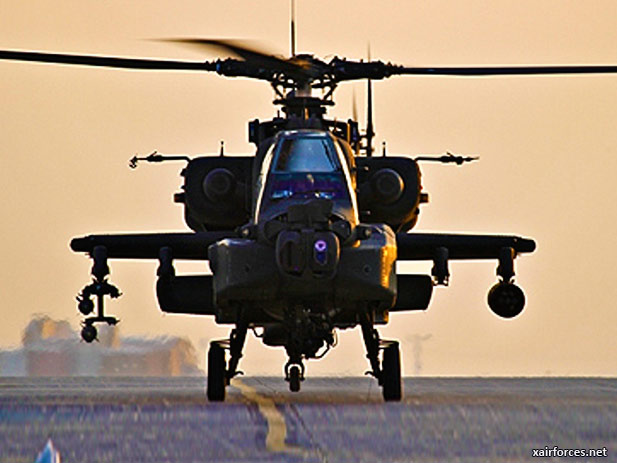
UN Treaty Could Hurt Indian Arms Deals

Exporters Place Restrictions on Military Goods. The United Nations Arms Trade Treaty adopted April 3 has sent shockwaves through India’s Defence Ministry as several ongoing projects could be affected. While no MoD official would comment on whether the treaty could impact weapon imports, an MoD source said planners are extremely concerned over the fate of some ongoing contracts and future purchases.
The treaty, aimed at laying down common international standards and limiting the illicit sale of conventional arms, was passed by the UN General Assembly with an overwhelming majority of 154 votes.
Defense analysts, meanwhile, were forthright and unanimous that the treaty could affect the big-ticket Medium Multi-Role Combat Aircraft (MMRCA) program and the contracted deal to buy Boeing Apache attack helicopters for the Indian Air Force.
“The treaty would pose problems for many deals for India, including the MMRCA, Apache attack helicopters — which have been selected — and anti-tank guided missiles in the offing in case the suppliers choose to apply the terms of the [treaty], since some of the deliveries and final contracts have not been signed,” defense analyst Rahul Bhonsle said.
No executive from French company Dassault Aviation, which is negotiating to sell its Rafale aircraft to India for the US $11 billion MMRCA program, would comment on whether the treaty could affect the purchase.
“As per Article 2.1 of the [treaty], India will face strict regulation or supervision from the exporter on weapons like combat aircraft, attack helicopters or stealth aircraft, warships and artillery,” said J. Jegannathan, research fellow at the Institute for Peace and Conflict Studies here.
One MoD official said the treaty favors arms exporters. India is the biggest importer of military hardware and an insignificant exporter.
According to a draft that was discussed by the principals, including the US, importers had protection with a sentence saying ongoing contracts will have to continue. The official said it is unclear what will happen to ongoing contracts.
The MoD source, however, said the defense vendor will be affected if the vendor has not taken note of the treaty’s safeguards in the contract.
An internal MoD assessment would be needed to review the situation on each of the ongoing weapons purchase programs, the source added.
“India is perhaps one of the most affected countries because two provisions of the [treaty] directly impact India’s security, these being weak provisions of illicit trafficking of weapons to terrorist groups and nonstate actors, and the second is a virtual carte blanche for arms exporters to dictate terms to arms importers, India being one of the largest importers today,” Bhonsle said.
India abstained from voting on the treaty.
“India objects to the [treaty] on several counts,” defense analyst Gurmeet Kanwal said. “First and foremost, India finds it difficult to accept that the treaty will enable arms exporting countries to impose unilateral conditions on the countries that import arms.
“The treaty has failed to address Indian concerns about the illegal transfer of arms to terrorist organizations, insurgent groups and other nonstate actors who oppose democratically elected governments.
“The treaty also does not ensure a ‘balance of obligations’ between arms exporting states and the importers of arms.”
Iran, North Korea and Syria voted against the treaty while China, India and Russia abstained.
The treaty covers tanks, armored combat vehicles, large-caliber weapons, combat aircraft, attack helicopters, warships, missiles and launchers, small arms and light weapons.
India, which imports nearly 70 percent of its weapons and equipment, will have to be careful in selecting the source of the supplies, some analysts said.
“India should be more concerned about some of the Western suppliers, which could potentially revoke these contracts because they are some of the major subscribers to the treaty,” said Rajeswari Pillai Rajagopalan, a senior fellow in security studies at the Observer Research Foundation here.
Source: By VIVEK RAGHUVANSHI, NEW DELHI - defensenews.com- 23 April 2013
Photo: The Boeing Apache attack helicopters for Indian Air Force (Photo by bestwallpaperhd.com)
(23.04.2013)
|